Best hindu boy names in sanskrit
Best hindu boy names in sanskrit and their meanings. Here yo can find unique baby boy name in sanskrit. We provide Some traditional Sanskrit baby name with their meanings. You also find Unique sanskrit names boy, vedic names for baby boy,modern sanskrit baby boy names and a to z baby boy names in sanskrit.

Names start with A
आ से प्रारम्भ होने वाले नाम
- Agniveśa (अग्निवेश): (Ancient Āyurveda practitioner) one who dwells near the fire
- Agasti (अगस्ति): (name of a sage): a mountain-thrower. (strong/ valorous person)
- Agira (अगिर): Sun, Fire, A Rākṣasa (demon)
- Acyuta (अच्युत): (name of Lord Viṣṇu) Not fallen, firm, imperishable, permanent
- Aniruḍa (अनिरुड): (son of Pradyumna) Unobstructed, self-willed
- Abhīma (अभीम): (name of Viṣṇu) causing no fear
- Arinandana (अरिनन्दन): affording triumph to an enemy
- Arka (अर्क): Sun, A ray or flash of lightning
- Aja (अज): (Eminent King in the Raghu lineage) One who is present eternally, the ultimate Principle (Brahma)
- Aṃśula (अंशुल): radiant one
- Amogha (अमोघ): succeeding, fruitful, hitting the mark
- Adhvara (अध्वर): non-injuring, a sacrifice
- Akrūra (अक्रूर): (very famous devotee of Shrī Kṛṣṇa) one who is not cruel, one who is merciful
- Anala (अनल): fire, the deity Agni, fire in the stomach which digests food, wind
- Anuvrata (अनुव्रत): devoted to, faithful to, ardently attached to
- Ajātaśatru (अजातशत्रु): (name of Yudhiṣṭhira) having no enemy
- Ajīgarta (अजीगर्त): (name of a poor ascetic) one who doesn’t have anything to eat (lit. to swallow)
- Aśvaghoṣa (अश्वघोष): (Sanskrit poet) the sound of a horse
- Abhinavakālidāsa (अभिनवकालिदास): The modern Kālidasa. (a name given to a modern Sanskrit poet: Mādhavācārya)
- Aśvatthāman (अश्वत्थामन्): (son of Droṇācārya) having the strength of a horse
- Adhiratha (अधिरथ): (a charioteer of Karṇa once being the Prince of Aṅga kingdom) One who is on the cart or chariot
- Arbuda (अर्बुद): (a serpent-like Demon coming in the RV conquered by Indra) a long round mass, a swelling or a tumour
- Advaita (अद्वैत): (Epithet of Viṣṇu, identity of Brahmā or the supreme soul) Non-duality, having no duplicate, peerless, sole, unique.
- Aravinda (अरविन्द): Lotus, the Indian crane.
- Arghya (अर्घ्य): valuable, deserving a respectful reception (as a guest), a daily oblation to Sun during twilight (dawn and evening).
- Abhiṣeka (अभिषेक): Coronation, inauguration, purification.
- Aṅkuśa (अङ्कुश): Reins, control over something.
- Anurāga (अनुराग): Affection, love.
- Ārṣa (आर्ष): belonging to seers (Ṛṣis), archaistic.
- Ākāla (आकाल): the right time.
- Ākāśa (आकाश): a free space, vacuity, ether, sky or atmosphere.
- Ākāra (आकार): form, appearance, gesture or aspect of body, expression of the face.
- Ākhuga (आखुग): (name of Lord Gaṇeśa) lit. one who rides on a rat.
- Āgama (आगम): origin, approach, acquisition of knowledge, a traditional doctrine or sacred work.
- Āgastya (आगस्त्य): one belonging to ṛṣi Agasti, follower of ṛṣi Agasti.
- Āgneya (आग्नेय): belonging or consecrated to fire or deity Agni.
- Āgrayaṇa (आग्रयण): first libation at the Agniṣṭoma sacrifice, a form of Agni.
- Āghoṣa (आघोष): invocation, boastful statement, proclamation.
- Āṅgirasa (आङ्गिरस): descended from or belonging to the Aṅgiras.
- Āñjaneya (आञ्जनेय): (name of God Hanumān) son of Añjanā.
- Āḍambara (आडम्बर): immensity, sublimity, pleasure.
- Ātitheya (आतिथेय): proper for or attentive to a guest, hospitable.
- Ātmaruha (आत्मरुह): one who grows independently.
- Ātmavīra (आत्मवीर): a mighty man.
- Ādinātha (आदिनाथ): (name of Śiva) the initial or supreme lord.
- Ādeśa (आदेश): advice, instruction, declaration, command, order.
- Ādhirathi (आधिरथि): son of Adhiratha Karṇa.
- Ānuśrava (आनुश्रव): resting on tradition, derived from the Veda or tradition.
- Ānūka (आनूक): ornament, jewels.
- Ānanda (आनन्द): pure happiness, joy, enjoyment.
- Āprīta (आप्रीत): gladdened, joyous.
- Ābhāsa (आभास): splendor, light, color, appearance.
- Āmoda (आमोद): gladdening, cheering up, serenity, aroma.
- Āyudha (आयुध): weapon, gold used for ornaments.
- Āryabhaṭṭa (आर्यभट्ट): (famous ancient mathematician and astronomer of India) noble and intelligent person.
- Āruṇi (आरुणि): Name of Uddālaka, a renowned Brāhmaṇa teacher.
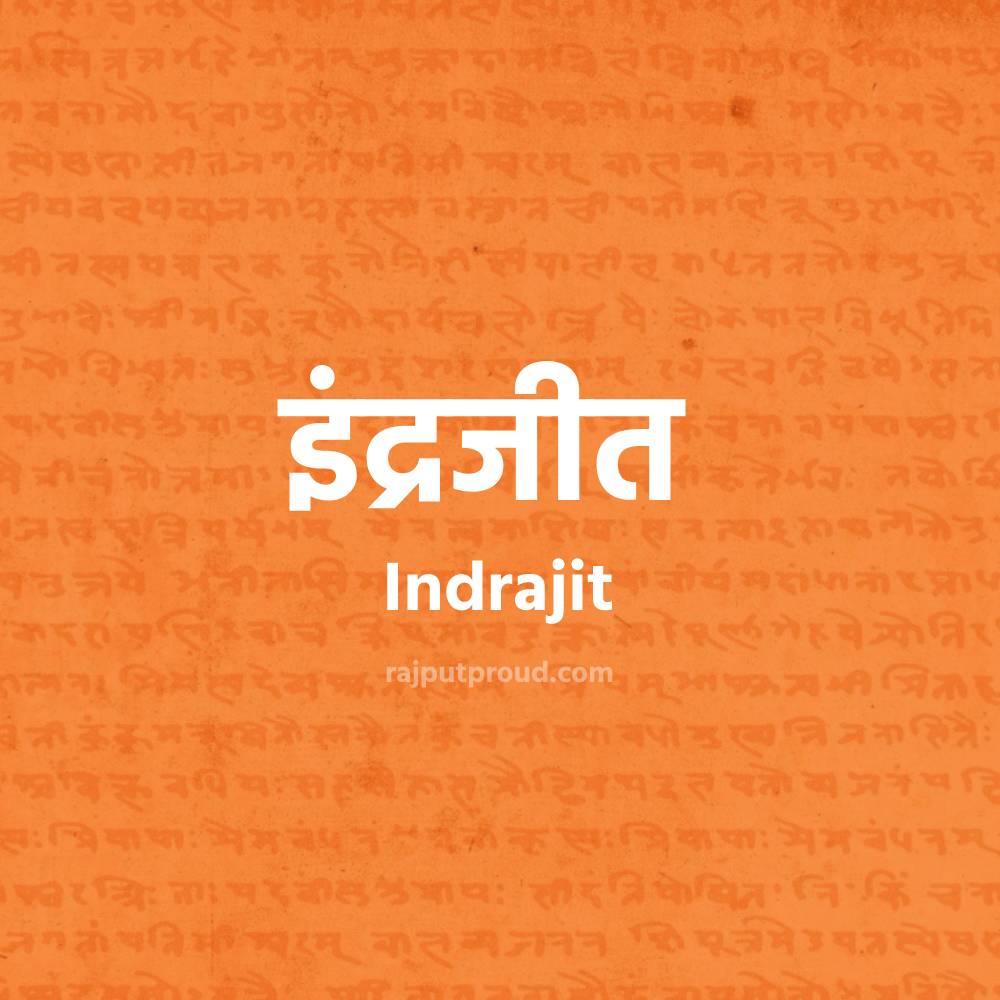
Names start with I
इ से प्रारम्भ होने वाले नाम
- Ikkavāla (इक्कवाल): good fortune, prosperity.
- Ikṣvāku (इक्ष्वाकु): name of a son of Vaivasvata Manu (the first king of the solar dynasty in Ayodhyā).
- Icchārāma (इच्छाराम): name of an author.
- Ijya (इज्य): a teacher, a deity or god, name of Bṛhaspati (the Guru of the gods).
- Iddha (इद्ध): kindled, lighted, shining, blazing.
- Iddhmavāha (इद्ध्मवाह): name of a son of Agastya Ṛṣi; one who carries fuel sticks or fuel in general (for the sacrifice).
- Iṭa (इट): name of a Ṛṣi belonging to Ṛgveda, a kind of reed or grass, a mat woven from such a grass.
- Iḍa (इड): name of Agni (who is to be addressed with prayers, or invoked with the stream or flow of praise).
- Indīvara (इन्दीवर): the blossom of a blue lotus.
- Indu (इन्दु): the moon, the Soma juice (often addressed in Rigveda), a bright drop or a spark.
- Indra (इन्द्र): The God of the atmosphere and sky or lord of rain. (one who has Vajra i.e. thunderbolt in his hand and smites the enemies with that.)
- Ina (इन): able, strong, mighty, glorious, a king, the sun, name of an Āditya.
- Inu (इनु): name of a Gandharva (a demi-god).
- Ilivila (इलिविल): name of a son of Daśaratha.
- Ilūṣa (इलूष): name of the father of Kavaṣa.
- Ilya (इल्य): name of a mythical tree in the other world.
- Iśhu (इषु): an arrow, name of a Soma ceremony, name of a constellation, ray of light.
- Iśmī (इष्मी): going quickly, speedy, impetuous (associated with the winds).
- Iṣṭa (इष्ट): desired, worshipped with sacrifices, sacrifice, beloved, agreeable, cherished, respected.
- Iṣira (इषिर): refreshing, fresh, active, vigorous, quick, name of Agni.
- Itvara (इत्वर): travelling, a traveller.
- Ījāna (ईजान): one who has sacrificed.
- Īlina (ईलिन): name of a son of Tansu and father of Duśyanta.
- Īśāna (ईशान): wealthy, reigning, ruler, master, one of the older names of Śiva or Rudra.
- Īśvara (ईश्वर): capable, liable, master, lord, prince, the supreme being.
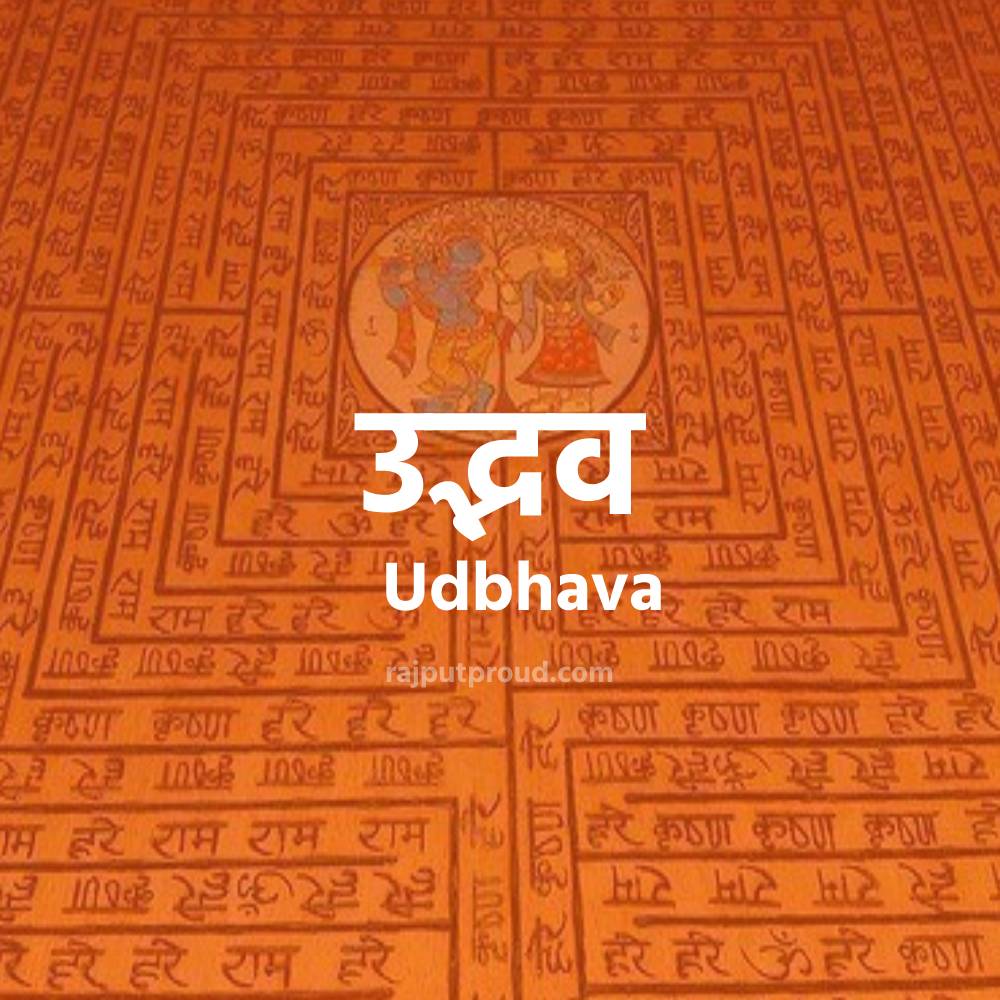
Names start with U
उ से प्रारम्भ होने वाले नाम
- Uktha (उक्थ): eulogy, praise, series of verses chanted together.
- Ukṣan (उक्षन्): Name of various deities like Soma, Maruts, Sun and Agni, (lit.) large, an ox or bull.
- Ukṣita (उक्षित): Sprinkled or consecrated, strong, fully grown.
- Ugravīrya (उग्रवीर्य): terrible in might.
- Uṅkāra (उङ्कार): name of a companion of Viṣṇu.
- Ucathya (उचथ्य): (name of an Āṅgirasa seer, author of some hymns of the Ṛgveda) deserving praise.
- Uccadeva (उच्चदेव): (name of God Viṣṇu or Kṛṣṇa) highest God.
- Ucchikha (उच्छिख): (Name of a Nāga in Mahābhārata) high-crested, blazing up, radiant.
- Ucchiras (उच्छिरस): one with an upraised head.
- Ujjendra (उज्जेन्द्र): name of a man.
- Ujjhaka (उज्झक): a devotee, a cloud.
- Uḍḍīśa (उड्डीश): name of Śiva.
- Utaṅka (उतङ्क): name of a Ṛṣi.
- Utathya (उतथ्य): name of a son of Aṅgiras and elder brother of Bṛhaspati.
- Utkala (उत्कल): name of a son of Dhruva.
- Uttama (उत्तम): best, excellent, highest, chief.
- Udāna (उदान): one of the five vital-airs present in the body, name of a kind of snake, joy.
- Udaya (उदय): rising, coming forth, being visible.
- Udayana (उदयन): (name of several kings and authors in Sanskrit literature) rising of the sun etc., conclusion, result.
- Udita (उदित): said, spoken, proclaimed, handed down.
- Uddālaka (उद्दालक): (name of a Sanskrit teacher) a kind of honey.
- Udbhava (उद्धव): (name of a son of Nahuṣa) existence, generation, origin.
- Udraka (उद्रक): name of a Ṛṣi.
- Unmaṇi (उन्मणि): a gem lying on the surface.
- Umeśa (उमेश): (name of God Śiva) husband of Umā i.e. Goddess Pārvatī.
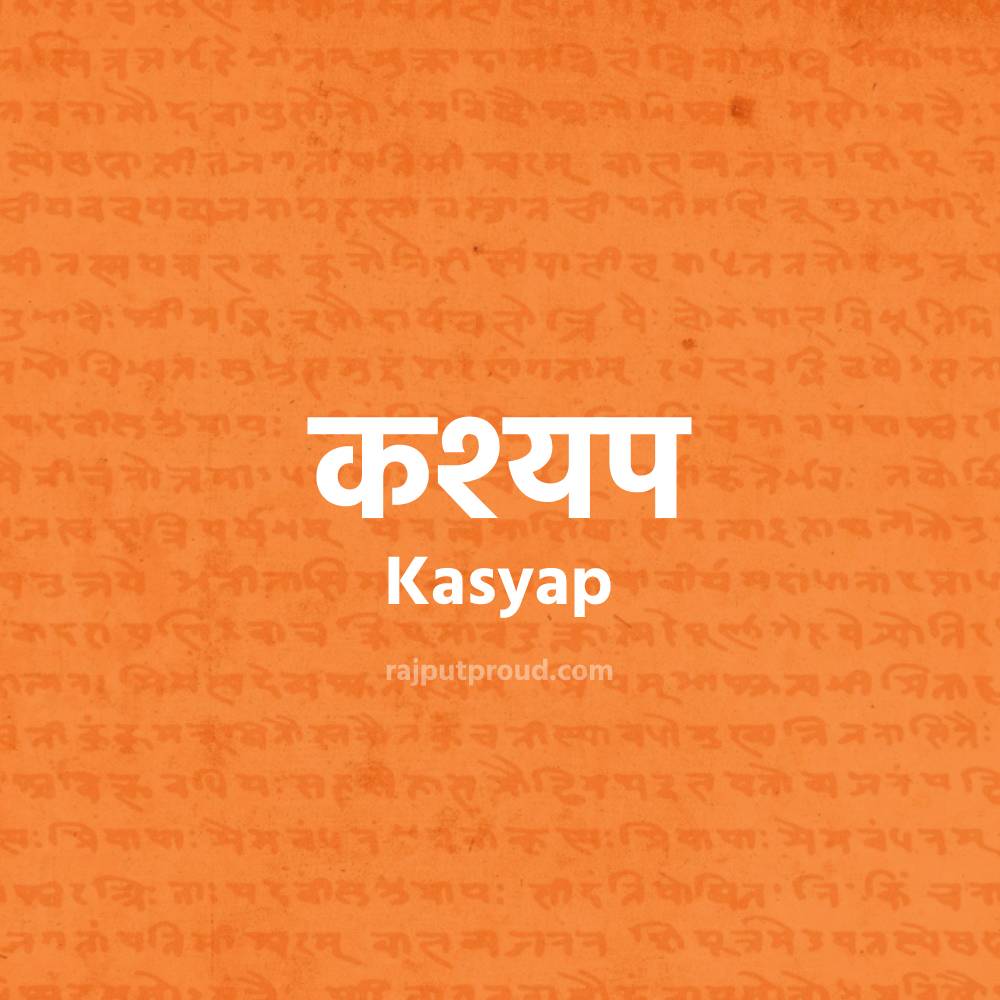
Names start with K
क से प्रारम्भ होने वाले नाम
- Kaca (कच): Name of the son of Bṛhaspati
- Kañjaka (कञ्जक) / Kañjala(कञ्जल) : the bird Gracula Religiosa (i.e, the myna)
- Kañjana (कञ्जन): Kāma, the god of love
- Kañjāra (कञ्जार): a peacock, an elephant, a Munī, the sun,name of Brahmā
- Kaṭamarda (कटमर्द) / Kaṭāṭaṅka (कटाटङ्क): Name of Śiva
- Kaṭavraṇa (कटव्रण): Name of Bhima
- Kaṭhiñjara (कठिञ्जर): name of Tulasi
- Kaṭha (कठ): name of a sage (a pupil of Vaiśaṃpāyana and founder of a branch of the Yajurveda, called after him)
- Kaṇāda (कणाद): name given to the author of the Vaiśeṣika branch of the Nyāya philosophy (as teaching that the world was formed by an aggregation of atoms; he is also called Kaśyapa, and considered as a Devarśi
- Kaṇva (कण्व) : name of a renowned Ṛṣi (author of several hymns of the Ṛgveda
- Kanakavarṇa (कनकवर्ण): Name of a King (supposed to be former manifestation of Śākya muni
- Kanakaśakti : name of Kārtikeya
- Kandoṭa (कन्दोट): The blue lotus
- Kandarpa (कन्दर्प) : Name of Kāma – the god of love, a particular Rāga
- Kapi (कपि): Name of Viśṇu or Kṛṣna, name of the sun
- Kapila (कपिल): An ancient sage considered to be the founder of the Sāṃkhya philosophy
- Karaṇa (करण) : a helper, companion (Atharvaveda)
- Karṇa (कर्ण) : name of a king of Aṅga (and elder brother by the mother’s side of the Pāṇḍu princes, being the son of the god Sūrya by Pṛthā or Kuntī, before her marriage with Pāṇḍu ; afraid of the censure of her relatives, Kuntī deserted the child and exposed it in the river, where it was found by a charioteer named Ādhiratha and nurtured by his wife Radhā ; hence Karna is sometimes called Sūtaputra or Sūtaja, sometimes Rādheya.
- Kardama (कर्दम) : name of Prajāpatī
- Kalādhara (कलाधर): Name of Śiva
- Kalinda (कलिन्द) : The sun, name of a mountain on which river Yamunā rises
- Kalpa (कल्प): Proper, fit, competent, equal, One of the six Vedāṅgas (that which prescribes the ritual and gives rules for ceremonial or sacrificial acts)
- Kalmāṣa (कल्माष) : a form of Agni, name of an attendant of the Sun
- Kalyāṇa (कल्याण): beautiful, agreeable, illustrious, noble, generous, excellent, virtuous, good ; a particular Rāga (sung at night) ; name of a Gandharva
- Kalhaṇa (कल्हण): name of the author of the book Rājataraṅgiṇī
- Kavi (कवि) : gifted with insight, intelligent, knowing, enlightened, wise, sensible, prudent, skilful, cunning; a thinker, intelligent man, man of understanding, leader ; a wise man, sage, seer, prophet; a singer, poet
- Kavikamala (कविकमल): Lotus seat of poets, name of Brahmā
- Kavikratu (कविक्रतु ): having insight of a wise man (names of Agni and Soma in the Ṛgveda)
- Kavicandra (कविचन्द्र): name of various authors
- Kaviṭṭa (कविभट्ट): name of a poet
- Kavīndu (कवीन्दु): moon of poets, name of Vālmīki
- Kavīndra (कवीन्द्र) : prince among poets
- Kavīśvara (कवीश्वर): lord among poets, name of a poet
- Kaśyapa (कश्यप): descendent of Marīci and the author of several hymns of Ṛgveda
- Kaśyapanandana (कश्यपनन्दन): son of a Kaśyapa, name of Garuḍa (name of the bird of Viṣṇu.
- Kaśyapatīrtha (कश्यपतीर्थ): name of a tīrtha
- Kācima (काचिम) : a sacred tree (growing near a temple)
- Kātyāyana (कात्यायन): name of the author of several treatises on ritual, grammar; also author of the Vārttikas or critical annotations on the aphorisms of Pāṇini, of the Yajurveda Prātiśākhya, and of the Śrauta-sūtras
- Kānta (कान्त) : desired, loved, dear, pleasing, agreeable, lovely, beautiful, name of Kṛṣna
- Kārtavīrya (कार्तवीर्य): son of Kṛtavīrya/ name of Arjuna (a prince, killed by Paraśurāma), Mahābhārata ; name of one of the Cakravartins (emperors of the world in Bhrārata-varsha)
- Kārttikeya (कार्त्तिकेय): name of a son of Śiva and Pārvatī (popularly regarded as God of war)
- Kāśīnātha (काशीनाथ): Lord of Benaras, name of Śiva
- Kāhalī (काहली): name of Śiva
- Kiraṇa (किरण): a ray of the beam of the light of the sun or the moon
- Kirāta (किरात): name of Śiva (as a mountaineer opposed to Arjuna described in Bhāravi’s poetry Kirātārjunīyam)
- Kiṛīṭa (किरीट) : a diadem, crest, any ornament used as a crown, tiara; name of a metre of four lines each consisting of 24 syllables
- Kumodaka (कुमोदक): name of Viṣṇu
- Kuṇāla (कुणाल) : a kind of a bird (living in the Himālaya), name of the son of Aśoka
- Kutsa (कुत्स): name of a Ṛśi, author of several hymns of the Ṛgveda
- Kunālika (कुनालिक): the Indian cuckoo
- Kuvaya (कुवय): a kind of bird
- Kuvala (कुवल) : a pearl
- Kuśa (कुश): sacred grass used in certain, religious ceremonies; son of Rāma
- Kuśāgra (कुशाग्र) : sharp, shrewd
- Kuśala (कुशल) : right, proper, suitable, good; competent, able, skilful, clever
- Kuśika (कुशिक): name of the father (or grandfather) of Viśvāmitra
- Kūpāra (कूपार) : the ocean
- Kṛṣkara (कृष्कर): name of Śiva
- Kedāra (केदार) : a field of meadow, name of Śiva as worshipped in the Himālayas
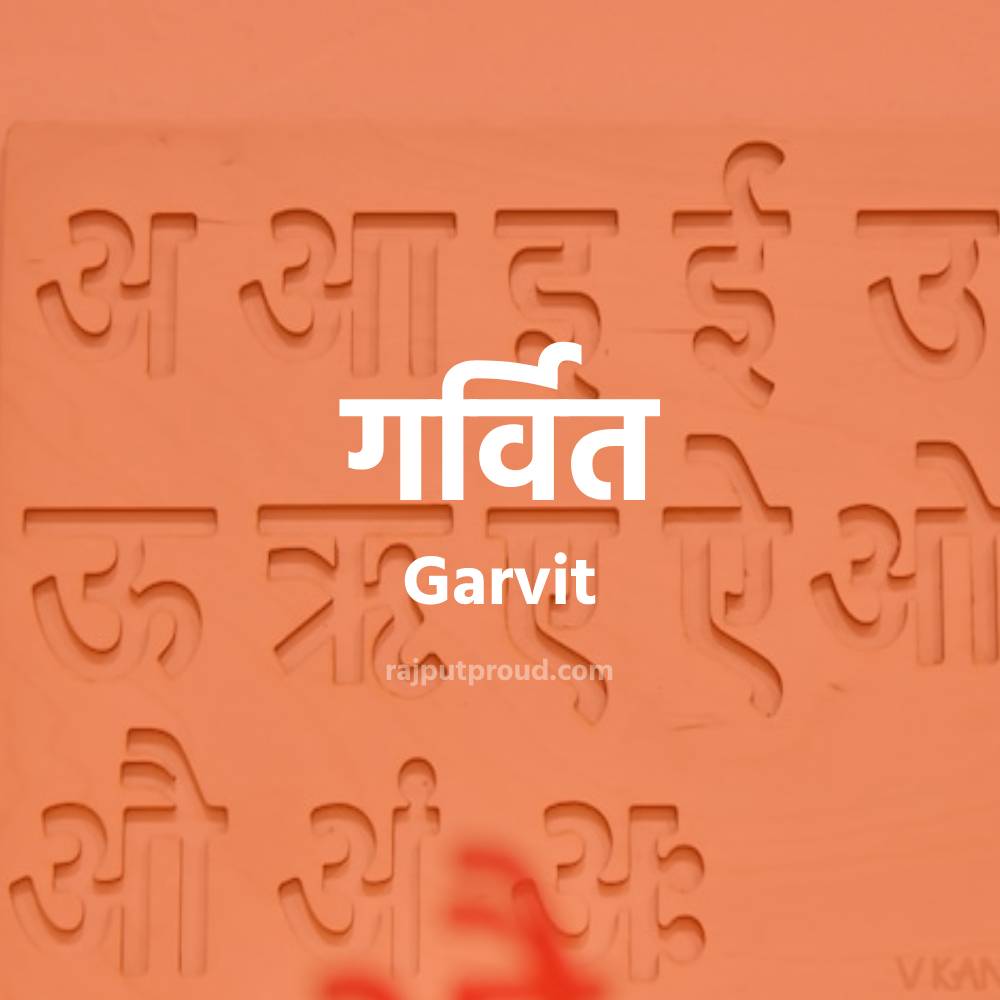
Names start with G
ग से प्रारम्भ होने वाले नाम
- Gaganagañja (गगनगञ्ज): name of Bodhisattva
- Gaṅgādhara (गङ्गाधर): receiver of Gaṅgā – the ocean, name of Śiva
- Gajarāja (गजराज): king of elephants
- Gañja (गञ्ज): a treasury, a jewel room
- Gada (गद): name of son of Vasudeva and the younger brother of Kṛṣṇa, name of a musical instrument, name of a constellation
- Gadāmbara (गदाम्बर): a cloud
- Gandhāra (गन्धार): the third note in music, name of a Rāga
- Garut (गरुत्): wing of a bird
- Garga (गर्ग): name of a sage – descendent of Bhāradwāja and Aṅgiras
- Garga (गर्गर): a kind of a musical instrument
- Gahana (गहन): deep, dense, inexplicable
- Gāṇḍiva (गाण्डीव): name of the bow of Arjuna
- Girika (गिरिक): name of Śiva
- Girisha (गिरिश): name of Śiva
- Guñja (गुञ्ज): bunch, bundle or cluster of blossoms
- Guṇāḍhya (गुणाढय): name of the famous author of Bṛhatkathā
- Guṇādhipa (गुणाधिप): king of virtues, name of a king
- Guṇeśvara (गुणेश्वर): lord of virtues, name of the mountain Citrakūṭa
- Gupila (गुपिल): a protector, a king
- Guru (गुरु): great, large, valuable, important, venerable, respectable, a spiritual parent or preceptor
- Gaurāṅga (गौराङ्ग): having a white/yellowish body
- Gaurava (गौरव): glory, dignity, respect
- Gautama (गौतम): remover of darkness, Droṇa, the historical Buddha
- Gaurīnātha (गौरीनाथ): name of Śiva
- Grāmika (ग्रामिक): rustic (in music), chromatic
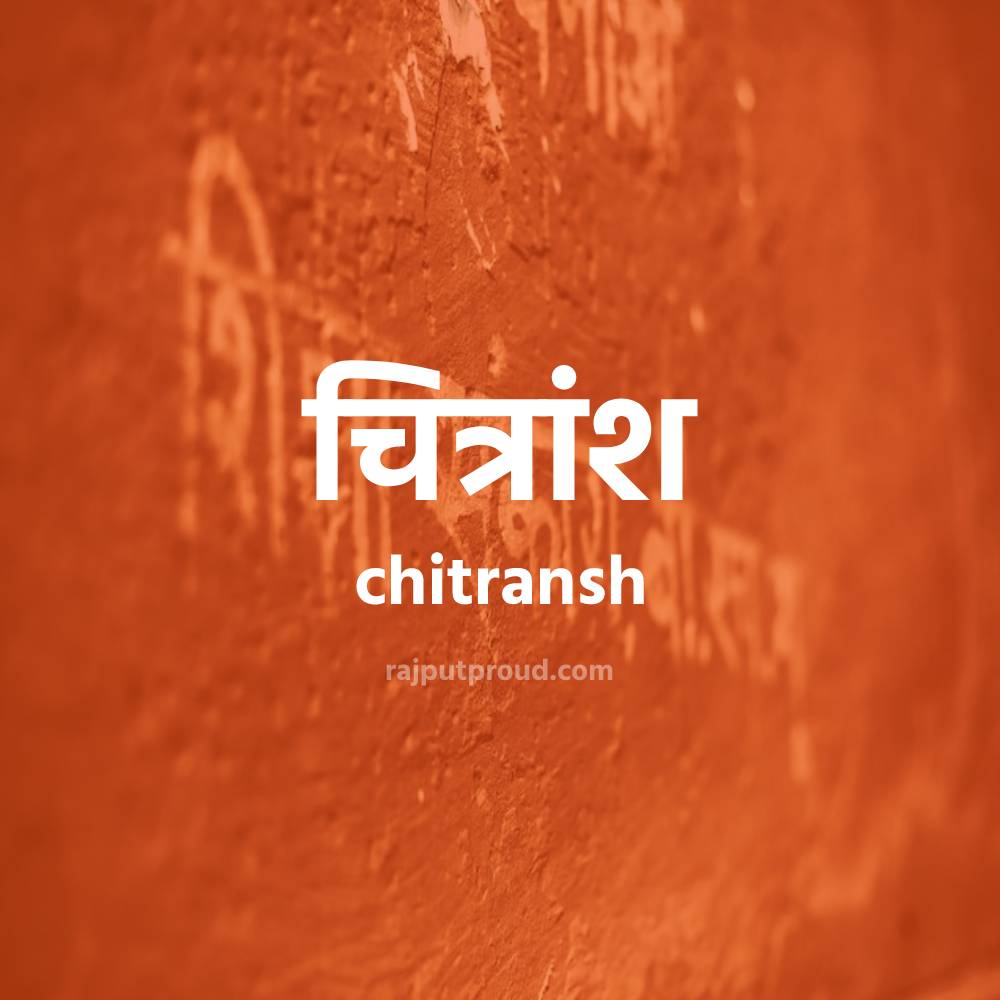
Names start with C
च से प्रारम्भ होने वाले नाम
- Caṇa (चण): famous, renowned.
- Cāṇakya (चाणक्य): (famous minister and political advisor of King Chandragupta) son of Caṇaka.
- Catura (चतुर): swift, quick, clever.
- Cadira (चदिर): the moon, camphor.
- Candana (चन्दन): Sandalwood, something which is excellent of its kind, aromatic.
- Carmika (चर्मिक): shield-bearer.
- Cākṣma (चाक्ष्म): gracious.
- Cāru (चारु): (one of the sons of Krishna) beloved, esteemed, pleasing.
- Caitanya (चैतन्य): consciousness, intelligence, soul.
- Cyavana (च्यवन): (a seer / ṛṣi who was the son of seer Bhṛgu) one who is moving or one who makes something to move.
- Cakrī (चक्री): (name of Viṣṇu) one who has the discus.
- Candreśa (चन्द्रेश): (one of the names of Śiva) lord of the moon.
- Cārudatta (चारुदत्त): one who is born beautiful.
- Citragupta (चित्रगुप्त): (assistant of Yama who keeps the records of good and bad deeds of every being.) rich in secrets.
- Cintāmaṇi (चिन्तामणि): (one of the names of Gaṇapatī) A jewel which wards off all the worries.
- Cakora (चकोर): the Greek partridge, a bird fabled to subsist on moon-beams.
- Cakra (चक्र): wheel of the chariot (in Rigveda, sun’s chariot), a discus or sharp circular missile weapon (especially of Viṣṇu).
- Cakreśa (चक्रेश): sovereign of the World.
- Cakśaṇi (चक्षणि): an illuminator.
- Caṅkura (चङ्कुर): a tree, a carriage.
- Cañcu (चञ्चु): renowned or famous, a deer, name of a plant.
- Candraketu (चन्द्रकेतु): (son of Lakṣmaṇa) sign or mark or torch like the moon.
- Caraka (चरक): (one of the followers and expounders of Ayurveda) Wanderer, Wandering religious student.
- Caravya (चरव्य): destined to sacrifice with Caru oblation, sacrificer.
- Cātaka (चातक): the bird Cuculus melanoleucus (said to subsist on rain-drops).
- Candrahāsa (चन्द्रहास): one having a smile as bright as the moon.
- Cāruhāsa (चारुहास): one having a beautiful smile.
- Cittarañjana (चित्तरञ्जन): gratifying or affiliating the mind.
- Caitra (चैत्र): first month of the Hindu calendar.
- Cirāyu (चिरायु): having a long life.
- Cidātmā (चिदात्मा): pure thought or intelligence.

Names start with j
ज से प्रारम्भ होने वाले नाम
- Jakuṭa (जकुट): the flower of the eggplant, the Malaya mountains
- Jagat (जगत्): the world
- Jagatpati (जगत्पति): the lord of the world
- Jagadādija (जगदादिज): name of Śiva
- Jagadīśa (जगदीश) / Jagadīśvara (जगदीश्वर): he lord of the world, Brahmā, Viṣṇu, Śiva
- Jagannātha (जगन्नाथ): world-lord, Viṣṇu or Kṛṣṇa
- Janamejaya (जनमेजय): causing men to tremble, name of the celebrated king to whom Vaiśampāyana narrated the Mahābhārata (great grandson of Arjuna)
- Janayiṣṇu (जनयिष्णु): a progenitor
- Jambhala (जम्भल): name of a spirit, god of wealth (Buddhist tradition)
- Jamadagni (जमदग्नि): name of a Ṛṣi, descendent of Bhṛgu, father of Parśurāma
- Jaya (जय): conquering, winning, conquest, victory, triumph, winning; a kind of flute (in music)
- Jayagupta (जयगुप्त) name of a poet
- Jayaskandha (जयस्कन्ध): name of the minister of Yudhiṣṭhira
- Jayendra (जयेन्द्र): a king from Kashmir
- Jayanta (जयन्त): victorious
- Jayiṣṇu (जयिष्णु): victorious
- Jitākṣara (जिताक्षर): one who has mastered his letters, ‘writing well’
- Jitamitra (जितमित्र): one who has conquered his enemies, triumphant, Viṣṇu
- Jitendra (जितेन्द्र): the one who has conquered his senses
- Jijñāsu (जिज्ञासु): desirous of knowing
- Jituma (जितुम): the sign Gemini
- Jina (जिन): victorious (an Arhat, the chief saint of the Jainas)
- Jinavallabha (जिनवल्लभ): name of a famous Jaina author
- Jinadhāra (जिनधार): name of Bodhisattva
- Jinendra (जिनेन्द्र): a Jaina saint, name of a grammarian
- Jineśa (जिनेश): an Arhat
- Jiṣṇu (जिष्णु): victorious, triumphant, winning
- Jīmuta (जीमूत): a cloud, nourisher, sustainer
- Jīva (जीव): the principle of life, vital breath
- Jīviteśa (जीवितेश): Yama, the sun
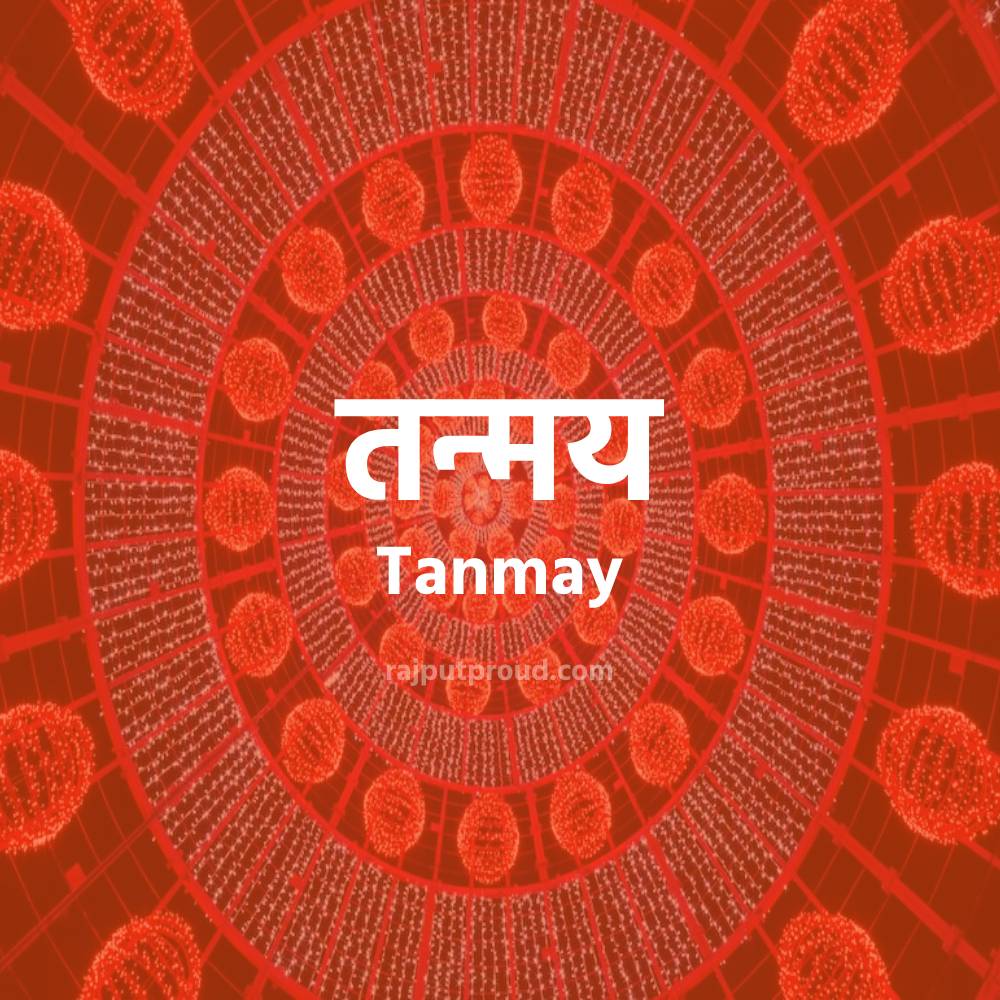
Hindu boy names in sanskrit start with T
त से प्रारम्भ होने वाले नाम
- Takśaka (तक्षक): name of a tree
- Tañjala (तञ्जल): the Cātaka bird
- Taṇḍu (तण्डु): name of an attendant of Śiva
- Tanmaya (तन्मय): absorbed in/identical with
- Tanaya (तनय): a son, name of Vasiṣṭha
- Tanuvardhana (तनुवर्धन): name of Viṣṇu
- Tapatanaya (तपतनय): on of the sun i.e Karṇa
- Tapita (तपित): refined gold
- Tapobala (तपोबल): power acquired by performing austerities
- Tamālaka (तमालक): bark of a bamboo
- Tamīśvara (तमीश्वर): the moon
- Tamoghna (तमोघ्न): destroyer of darkness, the sun, fire name of Viṣṇu, Śiva
- Taraṇa (तरण): final place, heaven
- Taranta (तरन्त): the ocean
- Taruṣa (तरुष): a conqueror, overcomer
- Taruṇa (तरुण): progressive, young, tender, juvenile
- Tarka (तर्क): conjecture
- Tarpaṇa (तर्पण): name of a plant, satiating, refreshing gods and deceased by presenting them libations of water
- Tarpara (तर्पर): bell hanging from the throat of a cow
- Tarṣa (तर्ष): thirst, wish, desire
- Talina (तलिन): thin, fine
- Tallaja (तल्लज): an excellent specimen
- Tavas (तवस्): strong, energetic
- Taviṣa (तविष): strong, energetic, courageous, heaven, ocean
- Tavya (तव्य): strong
- Tāttvika (तात्विक): in accordance with reality
- Tādātmaka (तादात्मक): denoting the unity of the nature
- Tāpana (तापन): illuminating
- Tijila (तिजिल): the moon
- Tittirika (तित्तिरिक): a partridge
- Tiniśa (तिनिश): Indian rosewood
- Timita (तिमित): quiet, steady, fixed
- Timiśa (तिमिश): name of a tree
- Tirima (तिरिम): a kind of rice
- Tiriṭa (तिरिट): tiara, diadem
- Tiṣya (तिष्य): name of a nakṣatra
- Tīkṣṇavega (तीक्ष्णवेग): possessing great velocity
- Tuṅga (तुङ्ग): prominent, erect, lofty
- Tuja (तुज): a thunderbolt
- Turaṇya (तुरण्य): swift
- Tvyojas (त्वोजस्): very powerful
- Tuṣṭa (तुष्ट): satisfied, pleased
- Tuṣāra (तुषार): frost, snow, mist, thin rain
- Tūṇava (तूणव): a flute
- Tūṣṇika (तूष्णिक): silent
- Tṛṣṇaka (तृष्णक): desirous, eager
- Teja (तेज): sharpness
- Tejas (तेजस्): gleaming with lustre
- Toṣa (तोष): satisfaction, contentment, pleasure, joy
- Tautika (तौतिक): a pearl oyster
- Tvarāyukta (त्वरायुक्त): expeditious
- Tveṣas (त्वेषस् ): energy, impulse
Hindu boy names in sanskrit start with D
द से प्रारम्भ होने वाले नाम
- Dakṣa (दक्ष): able, fit, expert, clever
- Dakṣṇeśa (दक्षणेश): Lord Śiva
- Daṇḍaka (दण्डक): name of a plant
- Datta (दत्त): protected, honoured
- Dattātraya (दत्तात्राय): name of a sage, son of Atri
- Dadhikra (दधिक्र): personification of the morning sun addressed in Ṛgveda
- Dayita (दयित): cherished, beloved, dear
- Darendra (दरेन्द्र): Viṣṇu’s conch
- Darpaka (दर्पक): making proud
- Darśa (दर्श): the moon when it just becomes visible
- Darśan (दर्शन): knowing, seeing, observing. looking
- Darśya (दर्श्य): worthy of being seen
- Dahara (दहर): short, fine, thin
- Dāka (दाक): a donor
- Dāman (दामन्): giver, donator
- Dāmodara (दामोदर): having a rope around the waist, name of Kṛṣṇa
- Damośṇiśa (दामोश्णिश): name of an ancient sage
- Dāruka (दारुक): name of Kṛṣṇa̍s charioteer
- Dārvaṇḍa (दार्वण्ड): a peacock
- Dālma (दाल्म): name of Indra
- Didyu (दिद्यु): the sky, heaven
- Dinarāja (दिनराज): ‘day king’, the sun
- Dilīpa (दिलीप): ancestor of Rāma
- Divaukas (दिवौकस्): a sky dweller, a deity, a God
- Divākara (दिवाकर): ‘day maker’, the sun
- Divodāsa (दिवोदास): name of Bharadvāja
- Diganta (दिगन्त): end of horizon
- Digambara (दिगम्बर): ‘sky clothed’, name of Śiva
- Diṣṇu (दिष्णु): liberal
- Dīkṣaka (दीक्षक): spiritual guide
- Dīpāṅkura (दीपाङ्कुर): the flame of light
- Dīpaka (दीपक) / Dīpana (दीपन): kindling, illuminating, name of a Rāga
- Dīpita (दीपित): excited
- Dūlāsa (दूलास): a bow
- Dṛita (दृत): to respect, honour
- Devadatta (देवदत्त): ‘god given’, name of Arjuna’s conch shell
- Deveśa (देवेश): chief of Gods, Brahma/Viṣṇu/Śiva
- Devaka (देवक): divine, celestial
- Devila (देविल): righteous, virtuous
- Devya (देव्य): divine power
- Devaṭa (देवट): artist, artisan
- Daivika (दैविक): related to Gods
- Daivya (दैव्य): divine
- Dyota (द्योत): light, brilliance
- Dyotana (द्योतन): shining, glittering
- Draviṇaka (द्रविणक): name of son of Agni
- Droṇa (द्रोण): preceptor of Kauravas and Pāṇḍavas
- Dvija (द्विज): twice born
- Dvijeśa (द्विजेश): chief of twice born
- Dvaidha (द्वैध): twofold, duality
- Dvaipāyana (द्वैपायन): ‘island-born’, name of Vyāsa
Hindu boy names in sanskrit start with Dh
ध से प्रारम्भ होने वाले नाम
- Dhanañjaya (धनञ्जय): fire, vital air to nourish the body, name of Arjuna
- Dhanādipa (धनादीप): lord of treasure, Kubera
- Dhaneśa (धनेश): name of Kubera
- Dhanuṣa (धनुष): bow maker, name of Kṛṣṇa
- Dharma (धर्म): observance or prescribed conduct/duty
- Dharmeśa (धर्मेश): Lord of righteousness
- Dharmya (धर्म्य): legal
- Dharṣa (धर्ष): boldness
- Dhāma (धाम): ray, strength, splendor
- Dhanurdhara (धनुर्धर): bearer of the bow, name of Śiva
- Dharaṇija (धरणीज): born from earth
- Dharendra (धरेन्द्र): king of the earth
- Dharmabhṛt (धर्मभृत्): bearer of religion
- Dhaumya (धौम्य): smoky, grey, name of a Ṛṣi, brother of Upamanyu
- Dhavalacandra (धवलचन्द्र): white moon
- Dhāvita (धावित): washed, purified
- Dhārmika (धार्मिक): righteous, virtuous
- Dhiyasāna (धियसान): attentive
- Dhitika (धितिक): name of Buddha
- Dhīṣaṇa (धीषण): intelligent, wise
- Dhīvan (धीवन्): skilful, clever
- Dhīman (धीमन्): intelligent
- Dhūka (धूक): time
- Dhṛk (धृक्): holding, supporting
- Dhṛta (धृत): supported, possessed
- Dhīṣaṇa (धीषण): wise, name of Bṛhaspati
- Dhṛṣita (धृषित): bold, brave
- Dhruva (ध्रुव): firm, fixed
- Dhruvākṣara (ध्रुवाक्षर): the eternal symbol, Om as Viṣṇu
- Dhurandhara (धुरन्धर): bearing yoke, chief, leader
- Dhupa (धुप): sun, fragrance
- Dhyāneśa (ध्यानेश): lord of meditation
- Dhṛtadakṣa (धृतदक्ष): a calm and constant mind
- Dhṛṣṭadyumna (धृष्टद्द्युम्न): glorified by bravery, son of Drupada
- Dhīra (धीर): constant, firm
- Dhairya (धैर्य): patience
- Dhaumya (धौम्य): name of an ancient Ṛṣi
- Dhaurjaṭa (धौर्जट): belonging to Śiva
- Dhyānika (ध्यानिक): proceeding from religious meditation
- Dhvaja (ध्वज): a banner, flag
Hindu boy names in sanskrit start with N
न से प्रारम्भ होने वाले नाम
- Nabha (नभ): the sky, expanding
- Naciketa (नचिकेत): fire, an ancient sage, so of Uddālaka
- Nakṣatra (नक्षत्र): star / heavenly body, sun
- Nāgeśa (नागेश): name of Śiva
- Naṭeśvara (नटेश्वर): lord of dancers
- Nanda (नन्द): joy, delight, happinness
- Nandaka (नन्दक): rejoicing, gladdening
- Nandīśa (नन्दीश): name of an attendent of Śiva
- Nabhaga (नभग): a bird
- Namita (नमित): modest
- Namana (नमन): salutation
- Nayakovida (नयकोविद): skilled in policy, prudent
- Nayaka (नयक): clever in policy
- Nayiṣṭha (नयिष्ठ): leading in the best manner
- Naraśārdula (नरशार्दूल): an eminent and illustrious man
- Nartana (नर्तन): a peacock
- Narmata (नर्मत): the sun
- Narottama (नरोत्तम): best among men, another name of Viṣṇu
- Naviṣṭha (नविष्ठ): newest, youngest
- Navina (नवीन): the new moon
- Navodaya (नवोदय): newly risen moon
- Navodita (नवोदित): newly risen, new born, name of the sun
- Navana (नवन): the act of praising
- Nahuṣa (नहुष): son of Manu, Ṛṣi in Ṛgveda
- Nārāyaṇa (नारायण): identified with Viṣṇu/Kṛṣṇa
- Nikara (निकर): collection, gift, treasure, the best of anything
- Niketa (निकेत): a mark, a sign
- Nikhara (निखर): name of Agni
- Nikhila (निखिल): complete, whole, entire
- Nikhuryapa (निखुर्यप): name of viṣṇu
- Nipuṇa (निपुण): clever, skilfull, sharp
- Nibhuyapa (निभुयप): name of Viṣṇu
- Nirvaha (निर्वह): a kind of sword
- Niruha (निरुह): logic
- Niruhaṇa (निरुहण): ascertainment
- Nireka (निरेक): prominence, superiority
- Nirghoṣa (निर्घोष): sound
- Nirjhara (निर्जर): a waterfall
- Nirṇaya (निर्णय): decision, complete ascertainment
- Nirṇara (निर्णर): one of the horses of the sun
- Nirdeśa (निर्देश): pointing out, indicating, directing
- Nirdhauta (निर्धौत): washed off, cleansed, purified, polished
- Nirbhṛta (निर्भृत): firm
- Nirmuṭa (निर्मुट): a tree, a free market/fair, the sun
- Niryāma (निर्याम): a pilot
- Niryūha (निर्युह): a kind of pinnacle
- Niśitha (निशिथ): night
- Niścaya (निश्चय): ascertainment, fixed opinion
- Niṣka (निष्क) deeply versed in, skilful, clever
- Nīlābha (नीलाभ): bluish hue, another name for moon
Hindu boy names in sanskrit start with P
प से प्रारम्भ होने वाले नाम
- Paṭīra (पटिर): sandalwood tree
- Patañjali (पतञ्जलि): a celebrated grammarian (author of Mahābhāṣya), a philosopher (founder of Yoga philosophy)
- Padma (पद्म): lotus
- Padmahāsa (पद्महास): smiling like / with a lotus
- Padmākara (पद्माकर): assemblage of lotuses
- Paniṣṭha (पनिष्ठ): very wonderful, glorious
- Parāka (पराक): a sort of religious penance
- Parikṣit (परिक्षित्): spreading around, extending (like Agni)
- Paricodita (परिचोदित): set in motion
- Paridhīra (परिधीर): very deep
- Parimala (परिमल): fragrant substance, fragrance, perfume
- Parimita (परिमित): measured, regulated
- Parihāṭaka (परिहाटक): made of pure gold
- Parparīka (पर्परिक): the sun
- Pallava (पल्लव): a sprout, spring, bud, blossom
- Pavana (पवन): purifier, wind or God of wind
- Pavita (पवित): purified, cleansed
- Pāṇḍara (पाण्डर): white, pale yellow, jasmine blossom
- Pāraka (पारक): satisfying, pleasing, cherishing
- Pāramārthika (पारमार्थिक): relating to high or spiritual object
- Pārindra (पारिन्द्र): a lion
- Pāruṣṇa (पारुष्ण): a kind of bird
- Pārtha (पार्थ): born from Pṛthā, name of Arjuna
- Pārthiva (पार्थिव): earthen, earthly
- Pālakāpya (पालकाप्य): name of an ancient sage
- Pālinda (पालिन्द): incense
- Pāvaka (पावक): pure, clear, shining, bright
- Pāvita (पावित): cleansed, purified
- Pāvirava (पाविरव): lightning
- Pāśaka (पाशक): an ornament for the feet
- Picavya (पिचव्य): the cotton plant
- Pināka (पिनाक): the staff or bow Specially of Rudra-Śiva
- Piśāṅgaka (पिशाङ्गक): attendant of Viṣṇu
- Piyuṣa (पियुष): milk of a cow during the first seven days of calving
- Puraṇa (पुराण): the sea, the ocean
- Puruṣendra (पुरुषेन्द्र): lord of men i.e a king
- Puruṣottama (पुरुषोत्तम): best among men, excellent or superior man
- Pulaka (पुलक): a species of edible plant, a kind of stone or gem
- Pulina (पुलिन): a sandbank, a small island or bank in the middle of a river, an islet, a sandy beach
- Puṣkara (पुष्कर): a blue lotus, name of a celebrated place of pilgrimage (now called Pokhar in the district of Ajmer)
- Pūnita (पूनित): cleansed, purified
- Pūyamāna (पूयमान): being cleansed or purified
- Pūjaka (पूजक): honoring, respecting, worshiping, a worshiper
- Pūrṇaka (पूर्णक): the blue jay, species of a tree
- Paunḍra (पौण्ड्र): a species of sugar-cane, name of the conch shell of Bhīma
- Paunḍarika (पौण्ड्रिक): consisting of lotus flowers
- Prakāma (प्रकाम): joy, delight
- Prakāśa (प्रकाश): appear, shine, become evident or manifest
- Praketa (प्रकॆत): perception, intelligence, knowledge
- Pragalbha (प्रगल्भ): bold or confident, behave resolutely
- Praguṇa (प्रगुण): right, correct, ho nest, upright
- Praghoṣa (प्रघोष): sound, noise, son Kṛṣṇa
- Praiṣa (प्रैष): sending, direction, invitation, summons, order, call
- Prauṇa (प्रौण): clever, learned, skilful
- Plukṣa (प्लुक्ष): fire
Hindu boy names in sanskrit start with B
ब से प्रारम्भ होने वाले नाम
- Banhiman (बन्हिमन्): abundance, multitude
- Bakoṭa (बकोट): a kind of crane
- Bakura (बकुर): a thunderbolt
- Bakula (बकुल): a kind of tree
- Badara (बदर): the jujube tree
- Badarī (बदरी): name of Viṣṇu
- Balakṣa (बलक्ष): white
- Balhāka (बल्हाक): a rain or thunder-cloud
- Bādhva (बाध्व): name of a Ṛṣi
- Balāditya (बलादित्य): the newly risen sun, morning sun
- Biṭhaka (बीठक): the sky
- Bimbita (बिम्बित): reflected back
- Budha (बुध): the one who is enlightened
- Buddhicintaka (बुद्धिचिन्तक): one who thinks wisely
- Budhakauśika (बुधकौशिक): author of Rāmarakṣā
- Budhajana (बुधजन): a wise man
- Bodhana (बोधन): prudent, clever, a wise man; name of Bṛhaspati
- Bṛhannaṭa (बृहन्नट): name of Arjuna
- Brahma (ब्रह्म): a priest
- Bruvāṇa (ब्रुवाण): speaking, telling
Hindu boy names in sanskrit start with Bh
भ से प्रारम्भ होने वाले नाम
- Bhadra (भद्र): blessed, auspicious, fortunate, prosperous, happy
- Bharata (भरत): name of Agni, celebrated hero and monarch of India (the son of Duṣyanta and Śakuntalā)
- Bharadvāja (भरद्वाज): bearing speed or light
- Bharita (भरित): nourished, full
- Bharu (भरु): a lord, master, name of Viṣṇu or Śiva
- Bhartavya (भर्तव्य): to be borne, carried
- Bhartṛ (भर्तृ): a bearer, a preserver, protector
- Bharga (भर्ग): radiance, splendour, name of Śiva
- Bhakuṭa (भकुट): having a bright point
- Bhānava (भानव): peculiar to the sun
- Bhānukesara (भानुकेसर): ray-maned, the sun
- Bhāma (भाम): light, brightness, splendour
- Bhāraṇḍa (भारण्ड): a fabulous bird
- Bhārata (भारत): descended from Bharata
- Bhāraya (भारय): a sky lark
- Bhārava (भारव): bow string
- Bhārgava (भार्गव): relating to/coming from Bhṛgu
- Bhāvodaya (भवोदय): rising of emotion or passion
- Bhāsa (भास): light, lustre, brightness
- Bhāsu (भासु): the sun
- Bhāskara (भासकर): making light, the sun
- Bhīṣaṇa (भीषण): terrifying, name of Śiva
- Bhīṣma (भीष्म): terrible, great, name of Śiva, son of Śantanu and Gaṅgā
- Bhūṣaṇa (भूषण): decorating, adorning, embellishment
- Bhṛgu (भृगु): name of a mythical race closely connected with fire
- Bhṛśa (भृश): strongly, greatly
- Bhairava (भैरव): name of a form of Śiva
- Bhairika (भैरिक): name of son of Kṛṣṇa by Satyabhāmā
- Bhautika (भौतिक): name of Śiva
- Bhaumya (भौम्य): being on earth
- Bhrānta (भ्रान्त): wandering or roaming about
- Bhrāja (भ्राज): shining, glittering
- Bhrāji (भ्राजी): splendour, lustre
- Bhrājiṣṇu (भ्राजिष्णु): shining, splendid, radiant
Hindu boy names in sanskrit start with M
म से प्रारम्भ होने वाले नाम
- Makaranda (मकरन्द): the juice of flowers, honey
- Magha (मघ): a gift, reward, wealth, power, a kind of flower
- Maṅkaṇaka (मङ्कणक): name of Ṛṣi
- Majjara (मज्जर): a kind of grass
- Mañjara (मञ्जर): a cluster of blossoms
- Mañjiman (मञ्जिमन्): beauty, elegance
- Mañjira (मञ्जिर): anklet
- Mañjunātha (मञ्जुनाथ): beautiful, name of Śiva
- Maṇi (मणि): a jewel, gem, pearl
- Mada (मद): hilarity, rapture, excitement, inspiration
- Madana (मदन): passion, love or the god of love
- Madhu (मधु): sweet, delicious, pleasant, charming, delightful
- Madhupa (मधुप): drinking sweetness
- Madhuvāc (मधुवाच्): sweet voiced, the indian cuckoo
- Madhusūdana (मधुसूदन): name of the destroyer of the demon Madhu i.e name of Kṛṣṇa
- Madhuka (मधुक): melodious
- Madhura (मधुर): sweet, pleasant, charming, delightful
- Madhuraka (मधुरक): sweet, pleasant, agreeable
- Madhva (मध्व): name of the founder of a sect of Vaiṣṇavas in South India
- Manana (मनन): thoughtful, careful, thinking, reflection, meditation, thought, intelligence, understanding
- Manasketa (मनस्केत): mental perception or conception, idea, notion
- Manita (मनित): known, understood
- Mandāra (मन्दार): the coral tree
- Manmatha (मन्मथ): love or the god of love, amorous passion or desire
- Manmana (मन्मन): confidential whisper
- Mayūkha (मयूख): a ray of light, flame, brightness, lustre
- Mayūra (मयूर) /Mayūraka (मयूरक): a peacock
- Maranda (मरन्द): the juice or nectar of flowers
- Marāla (मराल): soft, mild, tender
- Marici (मरीचि): a ray of light, flame, brightness, lustre, a ray of light (of the sun or moon)
- Maruta (मरुत): wind
- Maruvaka (मरुवक): a kind of flower, a tiger
- Mallāra (मल्लार): name of a Rāga in music
- Masāra (मसार): a sapphire or an emerald
- Mahanta (महन्त): superior
- Maheśa (महेश): the great lord, name of Śiva
- Maheśvara (महेश्वर): a great lord, sovereign, chief of gods i.e Indra
- Maheśvāsa (महेश्वास): a great archer
- Mahira (महिर) / Mihira (मिहिर): the sun
- Mānita (मानित): honoured, respected
- Mānava (मानव): descended from Manu
- Milinda (मिलिन्द): the honey bee
- Mihīra (मिहीर): the sun
- Mihiṛaṇa (मिहिरण): name of Śiva
- Mira (मीर): the ocean
- Mukunda (मुकुन्द): name of Viṣṇu (sometimes transferred to Śiva)
- Mukula (मुकुल): a bud
- Mukta (मुक्त): liberated, emancipated
- Mumucāna (मुमुचान): a cloud
- Muṇḍira (मुण्डिर): the sun
- Mudira (मुदिर): a cloud
- Muralīdhara (मुरलीधर): flute bearer, name of Kṛṣṇa, grandson of Kālidāsa
- Murdhaka (मुर्धक): a Kṣatriya
- Mṛtamada (मृतमद): blue vitriol
- Mṛdula (मृदुल): soft, tender
- Mṛṣālaka (मृशालक): the mango tree
- Mekhala (मेखल): a girdle
- Maitreya (मैत्रेय): friendly, benevolent
- Moda (मोद): joy, delight, gladness, pleasure
Hindu boy names in sanskrit start with Y
य से प्रारम्भ होने वाले नाम
- Yakṣa (यक्ष): (name of a class of semi-divine beings or attendants of Kubera, exceptionally also of Viṣṇu) a living supernatural being, spiritual apparition.
- Yajata (यजत): (name of Śiva) worthy of worship, adorable, holy, sublime, a priest, the moon.
- Yajñadhara (यज्ञधर): (name of God Viṣṇu) bearer of sacrifice.
- Yaṇva (यण्व): name of a Sāman sung in a sacrifice.
- Yati (यति): (name of a mythical race of ascetics connected with the Bhṛgus and said to have taken part in the creation of the world) an ascetic, devotee, a disposer.
- Yadu (यदु): name of an ancient hero in Vedas often mentioned together with Turvaśa and described as preserved by Indra during an inundation. (Also, he’s the son of Yayati and king of the Cedi region).
- Yamaka (यमक): a religious observance or obligation.
- Yayāti (ययाति): (son of King Nahuśa) celebrated monarch of the lunar race.
- Yavīnara (यविनार): name of a son of Ajamīḍha or of Dvimīḍha or of Bharmyāśva or of Vāhyāśva.
- Yaśa (यश): beautiful, splendid, worthy, excellent.
- Yaśogopi (यशोगोपि): name of a sanskrit scholar.
- Yahu (यहु): swift, mighty, strong.
- Yāma (याम): course, progress, road, way, path, chariot.
- Yāmīra (यामीर): the moon.
- Yājñika (याज्ञिक): relating or belonging to sacrifice, a sacrificer, one well-versed in sacrificial ritual.
- Yādava (यादव): (name of Kṛṣṇa, name of various authors) belonging to Yadu clan.
- Yāska (यास्क): author of the Nirukta (which is a commentary on difficult Vedic words contained in the list called Nighaṇṭu).
- Yuga (युग): a yoke, team, an age of the world, long mundane period of years.
- Yudhiṣṭhira (युधिष्ठिर): (name of the eldest of the Pāṇḍavas) firm or steady in battle.
- Yogindra (योगिन्द्र): name of Yajñavalkya and Valmikī ṛṣis.
- Yauthika (यौथिक): belonging to a troop or herd, a companion, a comrade.
- Yuvarāja (युवराज): a prince.
- Yohula (योहुल): name of a man.
- Yodheya (योधेय): a warrior, combatant.
- Yamana (यमन): a Rāga in Hindustānī classical music.
Hindu boy names in sanskrit start with R
र से प्रारम्भ होने वाले नाम
- Raṃsu (रंसु): cheerful, delightful
- Rakṣa (रक्ष): guarding
- Rakṣita (रक्षित): guarded, protected
- Raghu (रघु): hastening, going speedily, racing rapidly, name of the ancestor of Rāma
- Racita (रचित): performed, arranged
- Rajaṣṭha (रजष्ठ): straight, most perfect
- Rajas (रजस): silver, made of silver
- Rajata (रजत): whitish, silver colored
- Rajasānu (रजसानु): a cloud
- Rañjaka (रञ्जक): exciting passion/ love, charming, pleasing
- Rajanīsha (रजनीश): god of night, moon
- Raṇa (रण): delight. pleasure, gladness, joy (in Ṛgveda)
- Raṇvita (रण्वित): joyous
- Ratnākara (रत्नाकर): the sea, ocean
- Ratnendra (रत्नेन्द्र): precious
- Rabhiṣṭha (रभिष्ठ): most violent, strong
- Ripsu (रिप्सु): wishing to seize
- Ramaṇa (रमण): pleasing, charming
- Ramra (रम्र): name of the charioteer of the sun
- Rallaka (रल्लक): species of a stag/deer
- Ravi (रवि): a particular form of sun, an orange
- Raviṣṭha (रविष्ठ): loved by sun
- Ravīṣu (रवीषु): god of love i.e Kāmadeva
- Rasāla (रसाल): the mango tree
- Rasika (रसिक): tasteful, elegant
- Rākeśa (राकेश): the lord of night
- Rāghava (राघव): a descendent of Raghu
- Rāja (राज): a sovereign, a king
- Rājaka (राजक): illuminating, splendid
- Rājan (राजन्): a king, sovereign, prince, chief
- Rājita (राजित): illuminated, resplendent, brilliant, adorned
- Rādhaka (राधक): liberal, bountiful
- Rādheya (राधेय): name of Karṇa
- Rāma (राम): pleasing, charming, lovely, an Avatāra of Viṣṇu
- Ridhama (रिधम): spring
- Rīra (रीर): name of Śiva
- Rucika (रुचिक): a kind of ornament
- Rucya (रुच्य): bright, brilliant, splendid, beautiful
- Rudra (रुद्र): related to Śiva
- Roca (रोच): shining, radiant, name of a Rāga in music
- Rocaka (रोचक): brightening, enlightenment
- Rocana (रोचन): bright, shing, radiant
- Ropaṇaka (रोपणक): kind of bird
- Rohita (रोहित): name of the sun
- Rohiśa (रोहिश): a kind of deer
Hindu boy names in sanskrit start with L
ल से प्रारम्भ होने वाले नाम
- Lakṣa (लक्ष): a mark or sign to be aimed, targeted.
- Lakṣī (लक्षी): having good marks or signs.
- Lakṣmaṇa (लक्ष्मण): endowed with auspicious signs or marks, lucky, fortunate.
- Labdhātīrtha (लब्धातीर्थ): one who has gained an opportunity.
- Lalita (ललित): sporty, innocent, soft, gentle, charming.
- Lāla (लाल): the son of a Maitreya and a Brāhmaṇī.
- Lava (लव): (son of Rāma and Sītā) that which is cut or shorn off, a section, fragment, piece.
- Laṣva (लष्व): a dancer, an actor.
- Lāsya (लास्य): a dancer.
- Lokesh (लोकेश): lord of the worlds.
- Likhitā (लिखिता): a painter (masculine word).
- Laya (लय): to become attached to anyone, place of rest, residence, house, time.
- Lokajña (लोकज्ञ): one who knows the world, one who understands men.
- Lakṣmīkānta (लक्ष्मीकान्त): Beloved of Goddess Lakṣmī (Name of Viṣṇu).
- Lokita (लोकित): one who is seen, beheld, viewed.
- Lohitaka (लोहितक): a ruby.
- Līlādhara (लीलाधर): master of divine plays.
- Lambodara (लम्बोदर): (name of Gaṇeśa) one having big stomach.
- Lohitātākṣa (लोहिताक्ष): Lord Viṣṇu (red-eyed one).
- Lagadha (लगध): the author of Vedāṅga called Jyotiṣa.
- Lagaḍa (लगड): (an astrologer) a handsome person.
- Laghimāna (लघिमान): lightness, levity, absence of weight, a kind of siddhi or super-natural faculty of assuming excessive lightness at will.
- Laṭabha (लटभ): handsome, pretty, lovely.
- Lābhaka (लाभक): gain, profit, advantage.
- Lambika (लम्बिक): the Indian cuckoo.
Hindu boy names in sanskrit start with V
व से प्रारम्भ होने वाले नाम
- Vaṅkaṭaka (वङ्कटक): name of a Mountain in Sanskrit literature.
- Vakrama (वक्रम): flight, retreat.
- Vaṅgara (वङ्गर): name of a prince.
- Vaktā (वक्ता): speaker, eloquent, wise, honest, sincere, expounder or teacher.
- Vaṭeśvara (वटेश्वर): name of a Liṅga, of a Sanskrit poet.
- Vatsa (वत्स): (name of a descendant of Kaṇva, of Āgneya, of Kāśyapa) child or son, a year.
- Vatsāra (वत्सार): name of a son of Kaśyapa.
- Vanamāla (वनमाल): (name of Viṣṇu or Kṛṣṇa) wearing a garland of forest-flowers.
- Vandhūla (वन्धूल): name of a Ṛṣi.
- Varuṇa (वरुण): (name of a Vedic deity) all-enveloping sky.
- Vijaya (विजय): victory.
- Vīra (वीर): brave, courageous person.
- Vāja (वाज): strength, vigour, energy, spirit, speed.
- Vātsya (वातस्य): name of an ancient teacher, of an ancient astronomer.
- Vābhaṭa (वाभट): name of a lexicographer.
- Vālmīki (वाल्मीकि): name of the celebrated author of the epic- Rāmāyaṇa.
hindu boy names in sanskrit start with S
स से प्रारम्भ होने वाले नाम
- Saṃkalpa (सङ्कल्प): decided with determination
- Saṃyat (संयत): coherent, uninterrupted
- Saṃyama (संयम): restraint, control over senses
- Saṃvega (संवेग): excitement
- Saṃśraya (संश्रय): connection, association
- Saṃskāra (संस्कार): accomplishment, embellishment, adornment, purification, cleansing
- Saṃstubh (संस्तुभ्): a shout of joy
- Sakṣama (सक्षम): able, endure
- Saṅketa (सङ्केत): intimation, hint
- Saṅgrāma (सङ्ग्राम): battle, war, fight, combat
- Sañcaya (सञ्चय): collection
- Sañjaya(सञ्जय): completely victorious, triumphant (in Ṛgveda)
- Sañjita (सञ्जित) a conqueror, winner
- Sañjiva (सञ्जीव): the act of revival
- Sandāva (सन्दाव): flight
- Sandeśa (सन्देश): communication of intelligence, message, information
- Samanvaya (समन्वय): connected sequence or consequence, conjunction
- Samavakāra (समवकार): a kind of higher Rūpaka or drama
- Samādiṣṭa (समादिष्ट): assigned, indicated, directed, commanded
- Samitha (समिथ): fire
- Samīra (समीर): air, breeze, wind
- Samīhana (समीहन): zealous, eager
- Samukṣita (समुक्षित): sprinkled
- Samutka (समुत्क): desirous
- Samutkarṣa (समुत्कर्ष): self-elevation
- Samudāgama (समुदागम): full or complete knowledge
- Samupakrama (समुपक्रम): commencement
- Sammegha (सम्मेघ): the cloudy season
- Sarjura (सर्जुर): a day
- Sahira (सहिर): a mountain
- Sahiṣṇu (सहिष्णु): patient, forbearing
- Sāgara (सागर): the ocean
- Sāttvika (सात्त्विक): spirited, vigorous, energetic
- Sānanda (सानन्द): having joy or happiness, joyful, glad,delighted with
- Sāraṅga (सारङ्ग): having colour
- Sārāla (साराल): the sesamum plant
- Sārka (सार्क): the sun, sunny
- Sārthaka (सार्थक): having meaning, significant, important
- Sāhila (साहिल): guide, leader
- Sikṣya (सिक्ष्य): crystal, glass
- Siddhārtha (सिद्धार्थ): the one who has attained his object/aim successfully, name of Gautama Buddha
- Siddhānta (सिद्धान्त): final end/aim
- Sidhya (सिध्य): auspicious
- Sitinaka (सितिनक): pulse
- Sīraka (सीरक): a plough
- Sudarṣana (सुदर्शन): good-looking, beautiful, handsome, name of Śiva, name of the discus of Viṣṇu
- Sunandana (सुनन्दन): name of Kṛṣṇa
- Sundara (सुन्दर): beautiful, handsome, lovely
- Suvihita (सुविहित): well done or performed
- Suṣānta (सुशान्त): very calm and placid (like water)
- Suśruta (सुश्रुत): very famous, very famous and celebrated medical practitioner, the father of surgery
- Sūrya (सूर्य): the sun
hindu boy names in sanskrit start with Sh
श से प्रारम्भ होने वाले नाम
- Śaṃsa (शंस): recitation, invocation, praise
- Śaṃsatha (शंसथ): conversation
- Śakra (शक्र): strong, powerful, mighty (Indra)
- Śakvan (शक्वन्): powerful, able, mighty
- Śagma (शग्म): powerful, mighty
- Śakunta (शकुन्त): the blue jay
- Śaṅkhaka (शङ्खक): the conch shell
- Śaciṣṭha (शचिष्ठ): most powerful
- Śama (शम): tranquility, calmness
- Śamatha (शमथ): quiet, tranquility
- Śamaha (शमह): a quiet place, hermitage
- Śamiṣṭha (शमिष्ठ): most active, busiest
- Śaṃkara (शङ्कर): causing prosperity, auspiciousness
- Śambhu (शम्भु): existing for happiness
- Śarva (शर्व): name of Śiva
- Śaraṇa (शरण): shelter, place of refuge
- Śarad (शरद्): autumn
- Śaracchandra (शरच्चन्द्र): autumnal moon
- Śarkura (शर्कुर): young, tender
- Śardha (शर्ध): defiant, bold
- Śardhya (शर्ध्य): bold, strong
- Śalahaka (शलहक): the wind
- Śalya (शल्य): dart, spear
- Śalaṇga (शलङ्ग): a king, sovereign
- Śaśāṇka (शशाङ्क): hare-marked i.e the moon
- Śaṃtanu (शन्तनु): father of Bhīṣma
- Śaraṅgarava (शारङ्गरव): disciple of Kaṇva muni
- Śārdula (शार्दूल): a lion, a tiger
- Śālita (शालित): shining with, beautified
- Śikhara (शिखर): a mountain peak
- Śithira (शिथिर): flexible
- Śipiviṣṭa (शिपिविष्ट): pervaded by rays
- Śipita (शिपित): superfluous
- Śirīṣa (शिरीष): rain tree
- Śilamba (शिलम्ब): a sage
- Śukra (शुक्र): bright, resplendent
- Śukṣi (शुक्षि): air, wind
- Śuciya (शुचिय): to become clear, pure
- Śuṭira (शुटीर): a hero
- Śura (शूर): lion, hero
- Śuṣṇa (शुष्ण): the sun, fire
- Śekhara (शेखर): crown of the head
- Śodhana (शोधन): purifying, cleansing
- Śobhaka (शोभक): brilliant, beautiful
- Śobhita (शोभित): splendid, beautiful
- Śaunaka (शौनक): author of Ṛgvedic Prātiśākhya
- Śyāma (श्याम): dark coloured, name of Kṛṣṇa
- Śrāvaṇa (श्रावण): relating to ear, name of a Muni
- Śraviṣṭha (श्रविष्ठ): most famous
- Śreyas (श्रेयस्): more splendid, beautiful, excellent
hindu boy names in sanskrit start with H
ह से प्रारम्भ होने वाले नाम
- Hari (हरि): name of Viṣṇu
- Harmuṭa (हर्मुट): the sun
- Harṣa (हर्ष): joy, pleasure
- Haṃsarāja (हंसराज): king of swans
- Hārdika (हार्दिक): affectionate
- Harṣavardhana (हर्षवर्धन): the one who increases pleasure
- Himāṇśu (हिमांशु): cool rayed, the moon
- Hiraṇmaya (हिरण्मय): golden, gold-coloured, name of Brahma
- Hiraka (हिरक): a diamond
- Hutāṇśa (हुतांश): a part of an oblation
- Hṛdāṇṣu (हृदांषु): pleasant rays
- Hṛshi (हृषि): joy, satisfaction ,pleasure
- Hṛṣikeśa (हृषिकेश): lord of the senses (Manas i.e the mind)
- Hemanta (हेमन्त): winter, cold season
- Heramba (हेरम्ब): name of Ganeśa
We also provide Hindu Girl names in sanskrit. We should follow our tradition our culture our values. Lets start our hindu boy names in sanskrit. Sanskrit name shows the real value of our culture and our vedic civilization. Thank you for reading Unique sanskrit names boy, vedic names for baby boy, modern sanskrit baby boy names and a to z baby boy names in sanskrit.

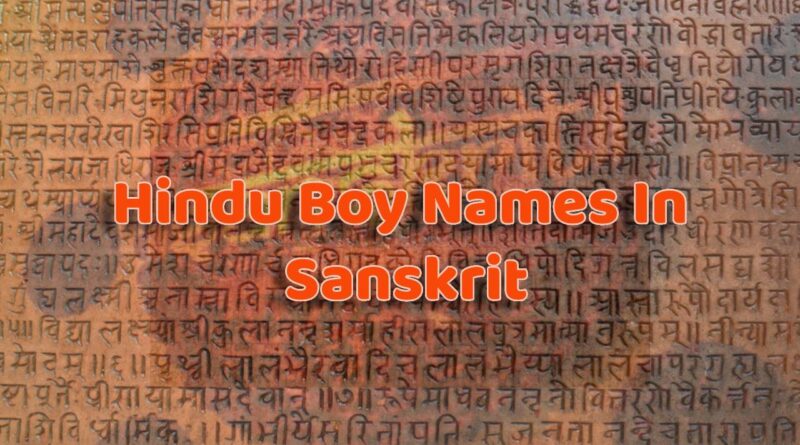
I like सक्र name. Comment witch name you like.
Ye to sabse alag hi post hai
All this names are copied from sunama sarit book